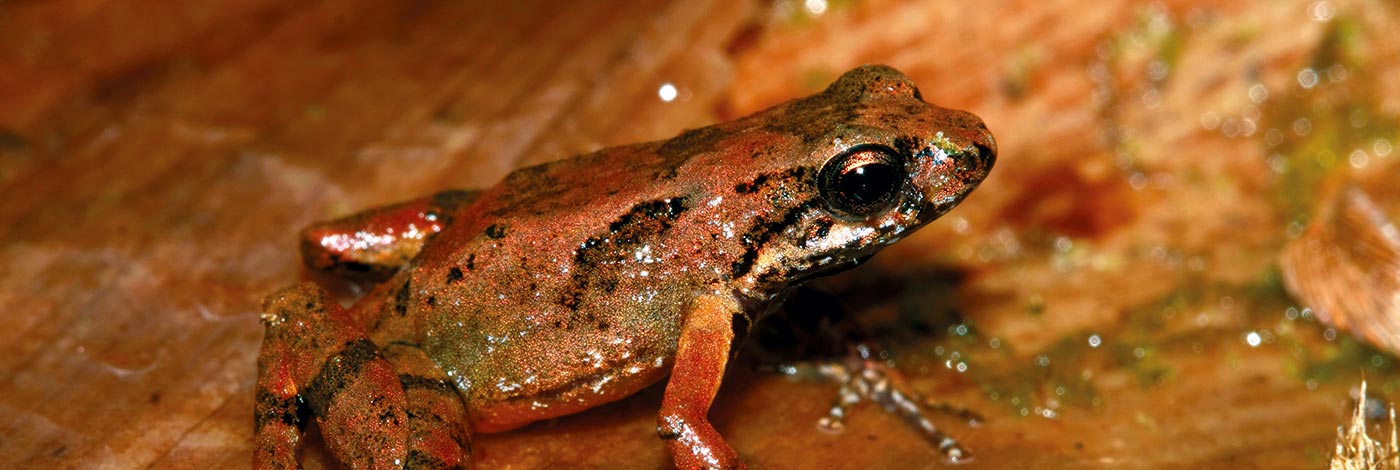
 Volume 12
Volume 12 Published on 11 September 2018
The reptiles and amphibians of the Caribbean islands are one the most endangered faunas in the world. General awareness of the vulnerability of these species (many of which occur on a single island) is only very recent, and the emergence of projects specially designed for their conservation is most welcome. When such initiatives are approved and even supported by the local authorities – as in the case of this book – they send a spark of hope for the future of these fascinating animals.
This book lays the foundation for the conservation of the amphibians and reptiles of Martinique. It provides an invaluable up-to-date review of all the information available on the biology, ecology and distribution of the species found on the island. It also offers handy working tools such as an illustrated identification key and QR code links to accurately identify the species by sight or ear.
Martinique is home to 22 terrestrial species of amphibians and reptiles, of which 11 are native and 11 introduced. Five species of marine turtles complete the picture.
The Atlas of the Amphibians and Reptiles of Martinique is the result of a long series of surveys to collect data in the field. Some 2 000 records, each with GPS coordinates, have been rounded up for the purpose of this book. These data considerably improve knowledge on the ecology and geographical distribution of both native and introduced species (some of them invasive): elevational range, rhythm of activity, diet, predation, factors of mortality. The monographs take into account the most recent findings in systematics and include the findings of local studies, many of them previously unpublished.
Maël Dewynter is a naturalist specialized in the study and conservation of tropical faunas.
Employed by the French Forestry Board (ONF) as manager of the Trinité then the Nouragues Nature Reserves in French Guiana, he later joined the Amazon-Caribbean branch of the company Biotope in 2012 and went on to set up in 2015 the Biotope Foundation for Biodiversity, of which he is still an active staff member.
He became in 2016 a member of the French Guianan regional scientific board for natural heritage (CSRPN), in which he strives to ensure greater consideration for biodiversity in development projects. He is also a member of the scientific board of the Amazonian National Park of French Guiana, where he contributes to the ongoing reflection on the conservation of the astounding biodiversity of the French overseas territories.
DEWYNTER M. (coord.) 2018. — Atlas des Amphibiens et Reptiles de Martinique. Muséum national d'Histoire naturelle, Paris ; Biotope, Mèze, 192 p. (Inventaires & biodiversité ; 12).